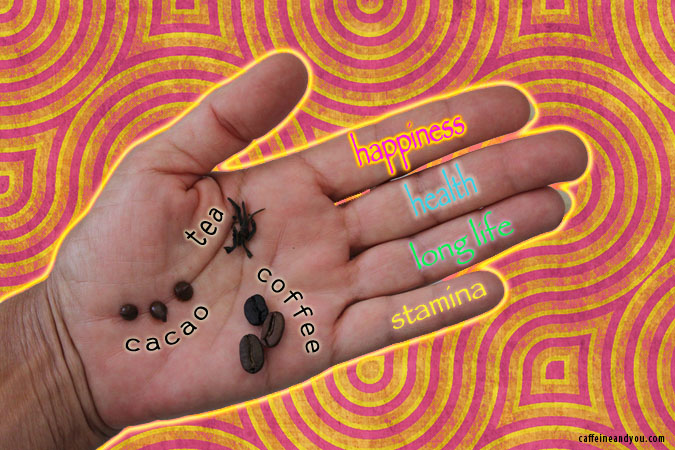 In the old days, fortune-tellers read tea leaves, coffee grounds or palms to predict the future. Today, genetic testing companies reveal your personal mysteries, with scientific accuracy. They tell you who your child’s other parent is, who your own parents are, whether cancer runs in the family, or if the person who looks just like you on YouTube really is your long lost sibling. Get your genetic data now!
In the old days, fortune-tellers read tea leaves, coffee grounds or palms to predict the future. Today, genetic testing companies reveal your personal mysteries, with scientific accuracy. They tell you who your child’s other parent is, who your own parents are, whether cancer runs in the family, or if the person who looks just like you on YouTube really is your long lost sibling. Get your genetic data now!
Here’s where things get interesting: There appears to be a big kernel of truth to the idea that your genes dictate how fast you metabolize caffeine. You can actually find out if you’re genetically programmed to crave large or small amounts of caffeine. All it takes is a simple cheek swab, sent to a genetic testing firm. So let’s jump straight to the actual research – which reveals that caffeine lingers longer when certain genes are switched on or off.
Clear as Mud Becomes Crystal Clearer (almost)
Caffeine researchers hit an “aha!” moment in 2010. They discovered that two genes determine whether you metabolize caffeine slowly or quickly. Together, these two genes are responsible for inherited differences in the way people process caffeine. They’re one reason why some people get amped from a single cup of coffee, while others down three cups before noon and another two at dinner, and never once jitter.
It’s in your genes, as the saying goes. Environmental factors, like whether you’re a smoker, still play a role. But genetic markers appear to explain a lot.
The two genes are known as CYP1A2, which has long been associated with caffeine (it produces an enzyme by the same name), and AHR, a gene that regulates the activity of CYP1A2. Researchers sifted through 300,000 genetic markers, before noticing that these two genes were essentially holding hands.
Slow and Fast Metabolizers
Every person has both of these genes, but CYP1A2 comes in two versions (or alleles; in this case differentiated by a single nucleotide). It’s like having a switch that is either turned on or off. This tiny variation makes you either a slow or fast metabolizer of caffeine ¬– it regulates how efficiently your liver breaks down and flushes caffeine from your system.
Slow metabolizers tend to drink less coffee (or other form of caffeine); fast metabolizers fuel up on more caffeine to keep feeling its effects. In one report, fast metabolizers averaged 40 mg more caffeine per day than did slow metabolizers.
In case you’re wondering, these particular caffeine genes don’t just regulate caffeine. They’re actually multi-taskers, and control other compounds, including ones related to certain cancers. (While we’re on the subject, different genes play a role in alcohol and nicotine addiction, too.)
The Caffeine Gene’s Split Personality
If you’re up for more complicated data: CYP1A2 also refers to an enzyme, generated by the gene CYP1A2 (genes are usually differentiated from their enzymes by italics). CYP is an abbreviation for a superfamily of enzymes and their encoding genes, known as cytochrome P450. The numbers and letters that follow CYP indicate the gene family, subfamily, and specific gene. Are your eyes glazing over yet? This may be too much information, but if you see CYP1A2 referenced as a both a gene and an enzyme, you’ll understand why.
Heart Attack Risk: What the Caffeine Gene Shows
One study based on 4,000 coffee drinkers used the CYP1A2 gene to identify slow and fast caffeine metabolizers, and their relationship to heart health. Slow metabolizers showed an increased risk of nonfatal heart attack. Women appeared to be at a slightly higher risk than men, probably because hormonal differences also slow caffeine’s breakdown in women.
For men and women, slow metabolizers showed increasing risk of nonfatal heart attack with increasing coffee consumption. Fast metabolizers, those who drank up to 3 cups a day, actually had a lower risk, as much as 52% lower.
So here’s the takeaway:
If you are a slow metabolizer, then drinking more than a cup of coffee a day may be risky for your heart. But a single cup of coffee seems to have no effect on heart risk, regardless of the genome variants. Moderation and self-regulation appear to be key.
Next Up: Are you addicted to caffeine? Chapter 8 looks at clinical caffeine disorders, including “The Starbucks Defense”…
